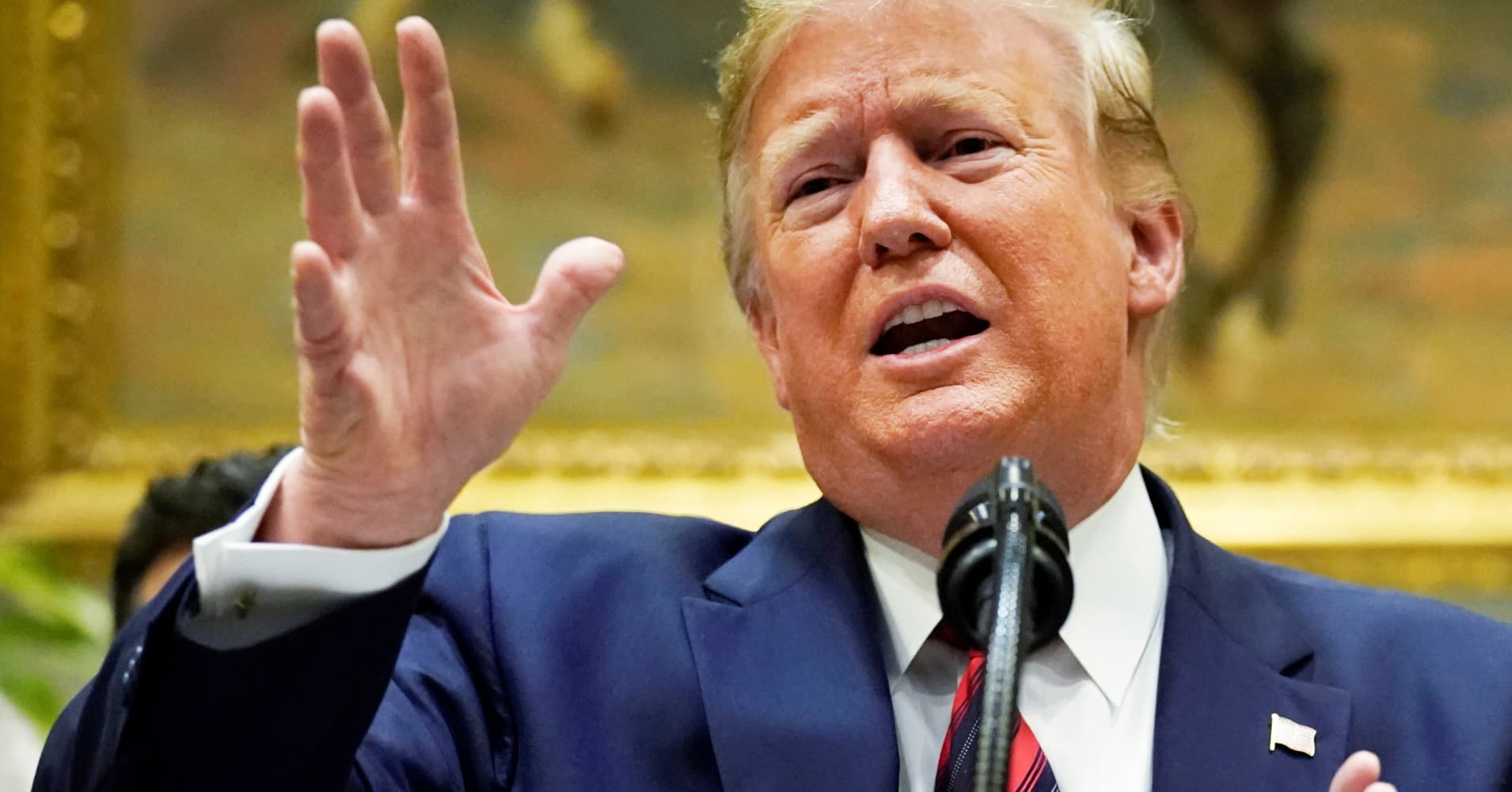Traders are clinging to hope that there's still time for a trade deal based on this theory - 2 minutes read

New tariffs kicked in Friday just as the markets had feared, but stocks are hanging in there.
div > div.group > p:first-child">Stocks opened Friday's session only slightly lower despite a tweet storm by President Donald Trump, in which he said there was "no need to rush" on a trade deal.
That's because traders are holding onto the hope that there's still plenty of time to hatch a deal — as much as two weeks.
Multiple traders and market strategists cite the notion that the new tariffs are not applied to Chinese exports that were already in transit before the deadline, which provides extra time before tariffs are actually applied to goods hitting U.S. shores. That theoretically gives more time for the two sides to reach an agreement.
"Exports that have already left Chinese ports before May 10 will not be subject to the increase," Goldman Sachs economist Jan Hatzius said in a note to clients on Thursday. "This creates an unofficial window, potentially lasting a couple of weeks, in which negotiations can continue and generates a 'soft' deadline to reach a deal."
Trump followed through with his threat as tariffs on $200 billion of Chinese goods were raised to 25% from 10% at midnight. The market has had a tough week as the trade tensions intensified with the Dow Jones Industrial Average falling more than 650 points this week through Thursday.
"Stocks are trading very well despite this ostensibly negative news," Adam Crisafulli, a J.P. Morgan managing director, said in a note on Friday. "Investors are taking comfort in two details: 1) talks are set to continue Fri between US and Chinese officials in Washington and 2) the new 25% tariffs will only be placed on goods that left China as of 12:01amET (not those presently in transit) – this could provide some additional time for the two sides to reach an agreement."
However, things could get uglier since China's Commerce Ministry said immediately after the tariff hike that it would take countermeasures against the American move. Chinese Vice Premier Liu He also lost his "special envoy" title for the negotiations this week, suggesting he may have diminished authority to make concessions that could be key to striking a deal.